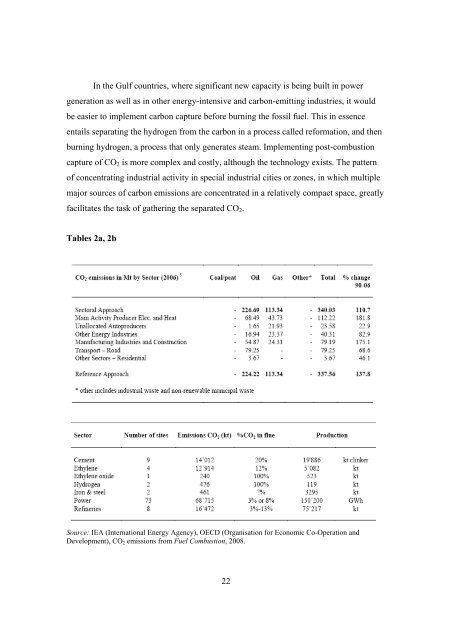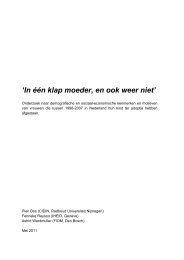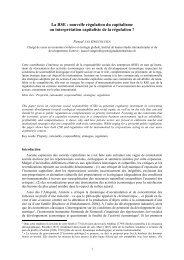PDF - Graduate Institute of International and Development Studies
PDF - Graduate Institute of International and Development Studies
PDF - Graduate Institute of International and Development Studies
Create successful ePaper yourself
Turn your PDF publications into a flip-book with our unique Google optimized e-Paper software.
In the Gulf countries, where significant new capacity is being built in power<br />
generation as well as in other energy-intensive <strong>and</strong> carbon-emitting industries, it would<br />
be easier to implement carbon capture before burning the fossil fuel. This in essence<br />
entails separating the hydrogen from the carbon in a process called reformation, <strong>and</strong> then<br />
burning hydrogen, a process that only generates steam. Implementing post-combustion<br />
capture <strong>of</strong> CO 2 is more complex <strong>and</strong> costly, although the technology exists. The pattern<br />
<strong>of</strong> concentrating industrial activity in special industrial cities or zones, in which multiple<br />
major sources <strong>of</strong> carbon emissions are concentrated in a relatively compact space, greatly<br />
facilitates the task <strong>of</strong> gathering the separated CO 2 .<br />
Tables 2a, 2b<br />
Source: IEA (<strong>International</strong> Energy Agency), OECD (Organisation for Economic Co-Operation <strong>and</strong><br />
<strong>Development</strong>), CO 2 emissions from Fuel Combustion, 2008.<br />
22




